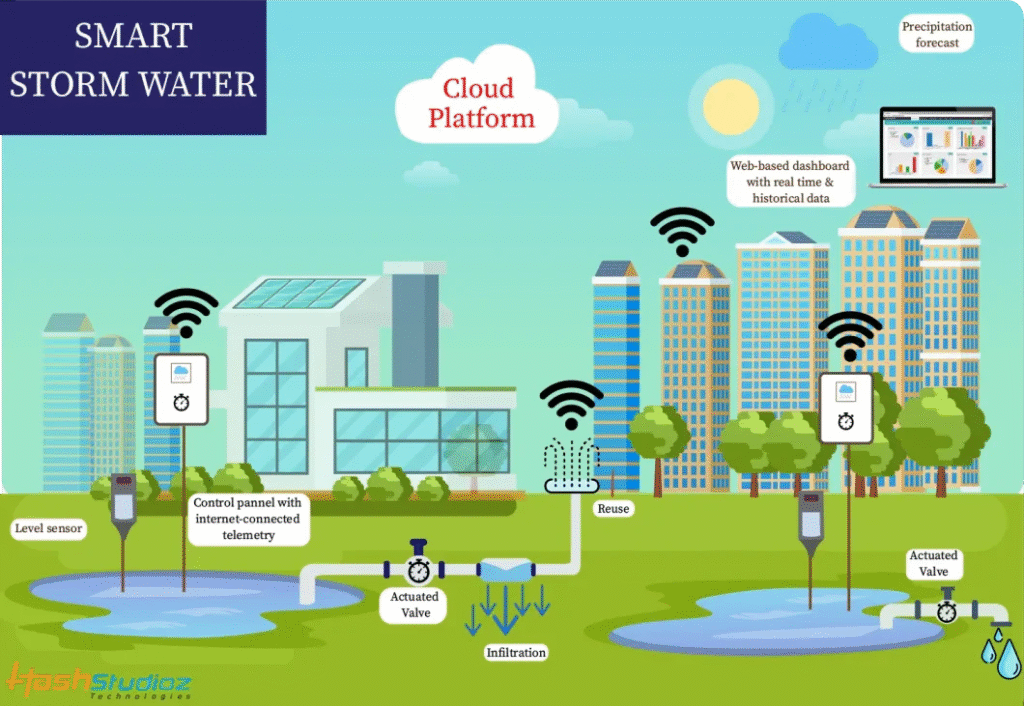Now Reading: How Smart Water Management Can Save the World 2025!
-
01
How Smart Water Management Can Save the World 2025!
How Smart Water Management Can Save the World 2025!

Table of Contents
Water is one of Earth’s most vital resources, supporting all life and enabling industries, agriculture, and human communities to survive and thrive. However, due to climate change, rapid urbanization, population growth, and mismanagement, water resources around the world are facing extreme pressure. Effective water management has become a global priority, with nations and organizations urgently working to find innovative solutions to protect and sustain this essential resource.
Water management is the process of planning, developing, distributing, and managing the optimum use of water resources. It involves balancing water supply with demand, ensuring its quality, and protecting natural ecosystems that depend on healthy water cycles. Without proper water management, communities can face severe water shortages, crop failures, sanitation issues, and even conflicts over scarce water supplies.
The Growing Water Crisis

According to the United Nations, over 2 billion people worldwide already live in countries experiencing high water stress. By 2025, half the world’s population is expected to live in water-scarce regions. Climate change is adding further strain, with prolonged droughts and unpredictable rainfall disrupting traditional water patterns.
In many parts of the world, aging infrastructure, leaking pipes, and poor governance make the problem worse. For instance, a huge amount of treated drinking water is lost every day due to leakages in outdated water systems. Meanwhile, pollution from factories, farms, and urban runoff contaminates precious freshwater resources, threatening both human and ecosystem health.
Key Principles of Water Management
To face these challenges, experts recommend adopting smart water management practices based on three essential principles:
Conservation – encouraging people and businesses to use water wisely and avoid waste.
Efficiency – investing in technologies that improve water delivery systems, reduce leaks, and maximize productivity per drop of water used.
Sustainability – protecting natural sources of water, such as rivers, lakes, wetlands, and aquifers, to ensure long-term availability for future generations.
Integrated Water Resources Management (IWRM) is a popular framework that looks at water holistically. It considers water for households, farms, industries, and ecosystems all together, promoting fair allocation and healthy ecosystems as part of water planning.
Modern Technologies Changing Water Management
New technologies are bringing hope to the fight against water scarcity. Smart water meters, for example, help track water use in real time, so leaks or waste can be quickly detected and fixed. Remote sensors can monitor water quality and alert authorities to pollution before it causes major harm.
Other promising innovations include water recycling systems that treat and reuse wastewater for agriculture or industry. In some places, desalination plants turn seawater into drinking water, providing a lifeline for communities with no freshwater sources.
On the agricultural side, precision irrigation systems use sensors and data to water crops only when and where needed, saving significant amounts of water compared to traditional irrigation.
Community and Policy Solutions
Technology alone cannot solve the water crisis. Community participation and government action are equally vital. Public education programs can teach people to use water more carefully, while policy makers can set rules to protect water sources and penalize polluters.
Experts also call for investment in modern water infrastructure, especially in developing countries, where millions still lack safe drinking water or proper sanitation. Building new water treatment plants, repairing old pipes, and expanding sewage systems can make a huge difference to both health and sustainability.
In many regions, water management also involves conflict resolution. When different groups — such as farmers, cities, and industries — compete for scarce water supplies, fair regulations and dialogue are essential to prevent disputes and ensure everyone’s needs are balanced.
Protecting Water for the Future

Water management is not only about pipes, dams, or treatment plants. It is about people. Access to clean water is a basic human right, and protecting this resource is a shared responsibility for governments, industries, and communities.
Looking ahead, climate change will make water challenges even harder. But there is also hope: more and more people are becoming aware of the importance of water management and demanding action. By investing in education, technology, infrastructure, and fair policies, we can build a future where everyone has access to safe and sustainable water.
Simple Actions You Can Take
While large-scale solutions matter, individuals can also make a difference with small daily actions:
Fix leaking taps or pipes at home
Take shorter showers
Turn off the tap while brushing your teeth
Support policies that protect rivers and wetlands
Avoid throwing chemicals or oils down drains
Every drop counts. With collective efforts, we can protect this precious resource for generations to come.
In conclusion, water management is the key to sustaining life on Earth. From climate change to pollution to population growth, our water resources face massive challenges, but they are not insurmountable. By working together, applying smart technologies, and protecting natural ecosystems, we can ensure that everyone has access to safe, clean, and affordable water — now and in the future.
Read More:- Deyaar’s Latest Announcement Shakes Up the UAE Property Market






















